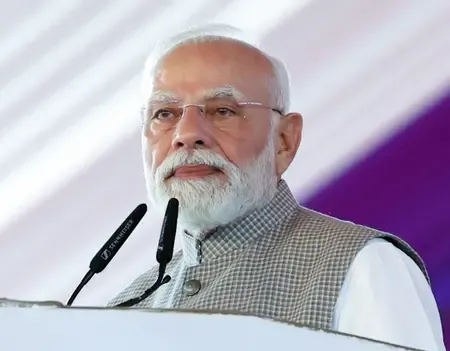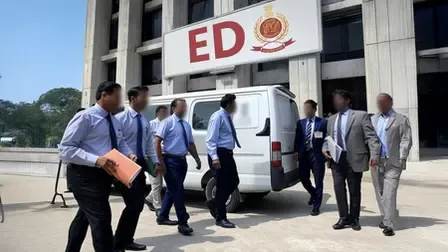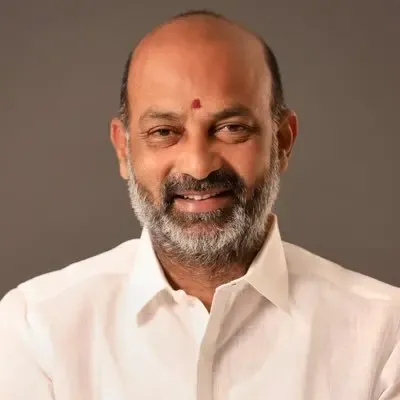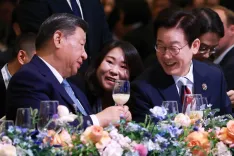Delhi Elections: Women Voters Take Center Stage
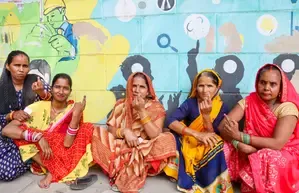
Synopsis
Key Takeaways
- The BJP and Congress are focusing on financial assistance for women voters.
- The AAP's free travel scheme for women is a pivotal electoral strategy.
- Health insurance and nutritional support are key components of party manifestos.
- Each party has unique offerings to attract low-income women voters.
- The upcoming elections highlight the growing influence of women in the political landscape.
New Delhi, Jan 17 (NationPress) The competition to attract women voters in the upcoming Delhi Assembly elections intensified on Friday as the BJP revealed an array of appealing welfare programs aimed at the 71.74 lakh women electors. These voters are also significant in the electoral promises made by both the ruling AAP and the Congress.
The influence of women voters in Delhi's elections is evident, with a higher turnout of women compared to men in 31 out of the 70 Assembly segments during the 2020 elections. The AAP secured victory in 28 of these constituencies, largely due to the free public transport initiative introduced by the Arvind Kejriwal administration just a year before the elections.
The trend of engaging women voters through electoral pledges originated in 2008 with then Chief Minister Sheila Dikshit, who initiated the ‘Ladli’ scheme, which deposited Rs 10,000 in a bank account for the education of every girl child born into families earning less than Rs 1 lakh annually.
In preparation for the February 5 elections, the AAP has positioned itself to attract women voters by promising Rs 2,100 to those from families earning under Rs 3 lakh per year through the Mukhya Mantri Mahila Samman Yojana. Although the scheme was launched, it faced legal challenges due to public notices from the Delhi government.
The BJP's ‘Sankalp Patra’, announced by National President J.P. Nadda on Friday, guarantees Rs 2,500 in monthly financial aid to women, which aligns with the Congress's commitment to impoverished women.
The BJP has termed this initiative as “Mahila Smriddhi Yojana,” while the Congress has branded it “Pyari Didi Yojana.”
As the February 5 voting approaches, BJP leaders are striving to convince the electorate that their party will fulfill promises made to women. They cite the financial support currently provided in BJP-led states such as Haryana, Madhya Pradesh, Chhattisgarh, and Maharashtra.
Meanwhile, Kejriwal claims that free travel for women on public transport is a pioneering initiative in the nation, which significantly contributed to the AAP's victory in the 2020 elections.
On Friday, Kejriwal sought to broaden the appeal to younger voters by proposing free bus travel for students and a 50% discount on Metro fares.
The BJP aims to maintain favor with low-income women voters, promising to uphold all public welfare programs in Delhi, including free bus travel, should they come to power after the February 5 elections.
“We will ensure these schemes are corruption-free and enhance them,” Nadda declared on Friday, without directly mentioning the free water and electricity programs frequently emphasized by both AAP and Congress.
The BJP's manifesto also promises a one-time financial aid of Rs 21,000 and six nutritional kits for pregnant women, alongside Rs 5,000 for the first child and Rs 6,000 for the second. These commitments reflect benefits offered nationwide under the Pradhan Mantri Matru Vandana Yojana, which is absent in the city.
All three parties in the Capital are offering health insurance schemes, albeit with varying degrees of coverage.
Nadda announced on behalf of the BJP that residents would receive health insurance coverage of Rs 5 lakh under the Ayushman Bharat scheme, increasing the overall health coverage for seniors to Rs 10 lakh.
In contrast, Congress proposed Rs 25 lakh in health insurance for all Delhi citizens, regardless of age.
Kejriwal's Sanjeevani Yojana aims to provide complimentary treatment for Delhi residents over 60 at both private and public hospitals.
Nadda also introduced a pension scheme, offering Rs 2,000-2,500 to senior citizens aged 60-70 and Rs 3,000 for those over 70. For differently-abled individuals and widows, assistance will rise to Rs 3,000.
The AAP has announced an Rs 18,000 monthly allowance for Hindu temple priests and Gurdwara granthis under the Puja Granthi Samman Yojana.
The Delhi Congress has pledged to alleviate monthly household expenses for women by providing a free monthly ration kit.
The ration kit will include 5 kg of rice, 2 kg of sugar, 1 liter of cooking oil, 6 kg of pulses, and 250 grams of tea, benefiting nearly 17 lakh families in Delhi, according to Congress president Devender Yadav.
The party has also guaranteed Rs 500 for LPG cylinders each month.
On the subsidized food front, the BJP has announced that Atal Canteens will be established in every slum, offering full meals for just Rs 5.
The BJP has committed to providing a Rs 500 subsidy on LPG cylinders, along with two complimentary cylinders during Diwali and Holi.


